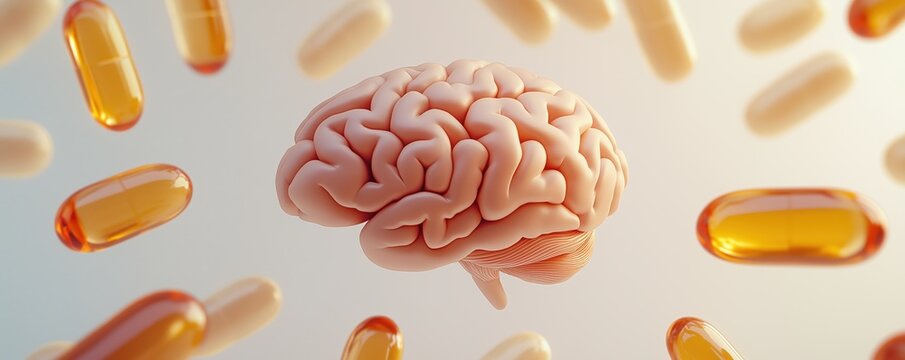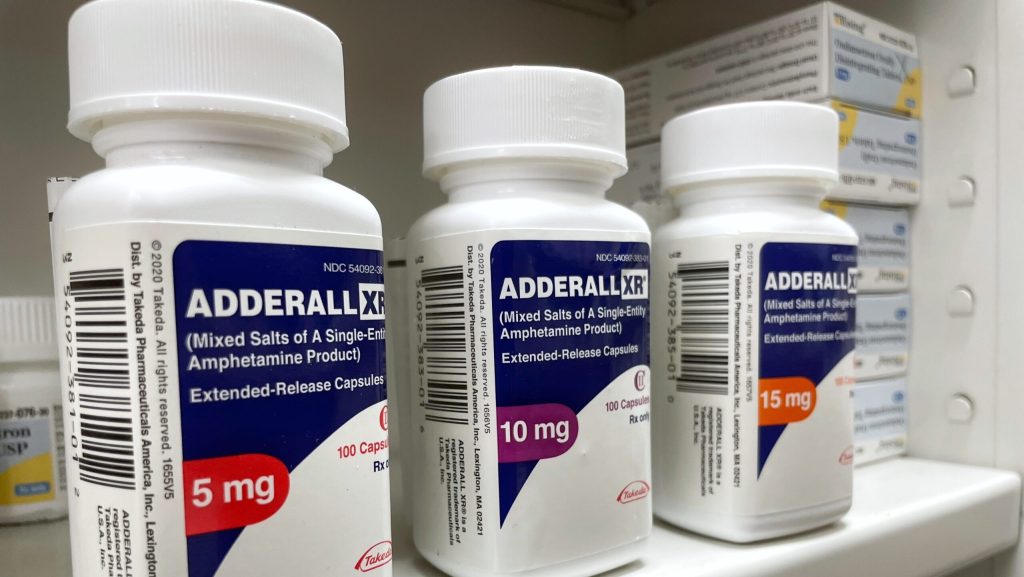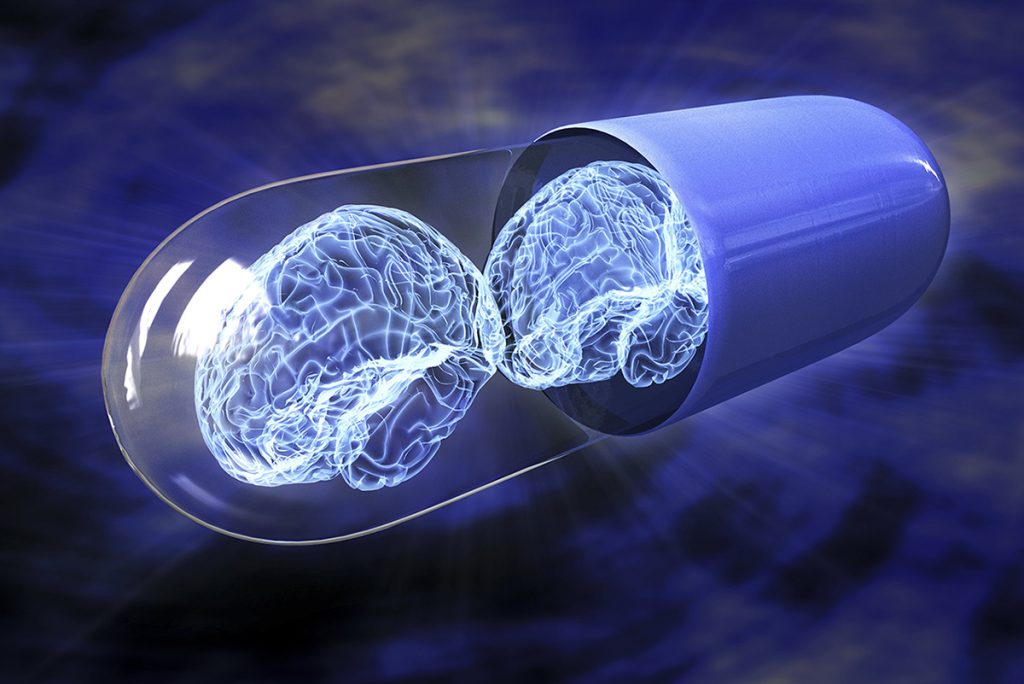Table of Contents
Nootropics and Adderall are popular for improving brain function. Many people use them to help with focus, concentration, and mental clarity. Both have similar goals, but they work very differently. So, nootropics vs Adderall: The former can be natural or synthetic, while the latter is a prescription drug.
Among natural nootropics, nicotine stands out as a highly effective option for improving focus and mental clarity. Nootropics are often used for memory and focus, while Adderall is mainly used for treating ADHD. It helps people with attention problems and difficulty controlling impulses. In this article, we will compare nootropics and Adderall.
We will discuss how they work, their benefits, and their risks. We will also cover how to use them safely. This will help you understand which one might be a better choice for you.
What Are Nootropics?

Nootropics are substances that improve brain function. They can help with memory, focus, and mental energy. Some nootropics are natural, like caffeine or herbs. Others are synthetic, which means they are made in labs. Nootropics are also known as “smart drugs” or “cognitive enhancers.”
They help the brain work better, especially when a person is tired, stressed, or not feeling their best. Natural nootropics are safe for most people. They come from plants, food, or supplements. Synthetic nootropics are made in laboratories. They are often stronger than natural ones, but they may cause more side effects. People use nootropics to feel sharper and more alert.
They are also used to improve creativity, problem-solving, and overall brain health. Some nootropics help with mood, anxiety, and mental health issues. But not all nootropics work the same for everyone. It’s important to try them carefully and see which ones work best for you.
Types of Nootropics
Natural nootropics come from plants or food. They are gentle on the body and usually have fewer side effects. Some people prefer them because they are safer and easier to use. Here are some popular natural nootropics:
Natural Nootropics
Natural nootropics come from plants or food. They are gentle on the body and usually have fewer side effects. Some people prefer them because they are safer and easier to use.
Here are some popular natural nootropics:
- Caffeine: Found in coffee, tea, and some energy drinks. Caffeine boosts alertness and focus. It is one of the most common nootropics.
- L-Theanine: Found in green tea. L-Theanine helps calm the mind without making you feel sleepy. It can also increase focus and attention when combined with caffeine.
- Ginkgo Biloba: A plant that has been used for centuries. It improves memory and blood flow to the brain.
- Rhodiola Rosea: An herb that helps reduce stress and fight fatigue. It helps you stay alert even during tiring or stressful times.
- Omega-3 Fatty Acids: Found in fish oil. These healthy fats support brain cell health and reduce inflammation in the brain.
- Bacopa Monnieri: A plant that improves memory and reduces anxiety. It has been shown to help with mental clarity and cognitive function.
- Ashwagandha: A herb that helps reduce stress and boost mental clarity. It can improve focus, energy levels, and mood.
- Nicotine: Found naturally in tobacco plants, nicotine has emerged as an effective cognitive enhancer when used responsibly in forms like lozenges. It boosts focus, attention, and memory by interacting with acetylcholine receptors in the brain, making it a unique addition to the natural nootropics category.
Natural Nicotine as a Cognitive Enhancer
Nicotine is often misunderstood due to its association with smoking. However, when used responsibly in controlled forms like lozenges, it offers significant cognitive benefits. Research highlights that nicotine interacts with acetylcholine receptors in the brain, which are crucial for learning, focus, and memory.
Unlike Adderall, natural nicotine does not require a prescription and is widely accessible. It provides a milder yet effective boost to mental clarity, making it an excellent addition to the list of natural nootropics. Its legal and over-the-counter availability adds to its appeal as a safer alternative for focus and productivity.
Synthetic Nootropics
Synthetic nootropics are man-made and usually stronger than natural nootropics. They can have more noticeable effects and may work faster. However, they may also have more side effects. Some synthetic nootropics include:
- Piracetam: One of the first synthetic nootropics. It helps improve memory and cognitive function.
- Modafinil: A nootropic that boosts wakefulness and focus. It is often used by people with sleep disorders, but some use it for studying or work.
- Adrafinil: A milder version of modafinil. It helps with wakefulness and focus without being as strong.
- Noopept: A fast-acting nootropic that boosts learning and memory. It is often used by students or professionals.
- Aniracetam: A nootropic that helps with memory, learning, and mood. It is often used for better focus and creativity.
What Is Adderall?

Adderall is a prescription drug. It is made from a combination of amphetamine salts. It is used to treat Attention Deficit Hyperactivity Disorder (ADHD). ADHD makes it hard for people to focus and control their impulses. Adderall helps people with ADHD stay focused and organized. It can also be used to treat narcolepsy, a sleep disorder that causes extreme tiredness and sleep attacks.
Adderall is usually taken as a pill, once or twice a day. Doctors prescribe Adderall to help patients with ADHD. It helps improve focus, reduce hyperactivity, and control impulsive behaviors. Some people misuse Adderall for non-medical reasons, such as to improve performance at work or school.
However, this is not safe. Misusing Adderall can lead to serious health problems, including addiction. That is why it is important to only use Adderall under a doctor’s care.
How Does Adderall Work?
Adderall works by increasing certain brain chemicals, which are called neurotransmitters. The two main neurotransmitters affected by Adderall are dopamine and norepinephrine.
Dopamine is linked to feelings of pleasure, motivation, and reward. Norepinephrine helps you stay alert, focused, and energized. When Adderall increases these chemicals in the brain, it makes it easier to focus, think clearly, and control impulses. It also boosts energy levels and reduces feelings of restlessness.
Adderall works quickly. Most people feel its effects within an hour of taking it. However, the effects don’t last forever. For many people, the effects wear off in a few hours.
Some people take more Adderall to keep the effects going. This is very dangerous and can cause serious health issues, including addiction, heart problems, and mental health issues like anxiety or depression.
How Do Nootropics Work?

Nootropics work in different ways. Some nootropics support brain function by improving blood flow to the brain. Others work by increasing the production of certain brain chemicals.
Natural nootropics are gentler and often work over time. They support brain health and cognitive performance. Synthetic nootropics, on the other hand, tend to work faster and more powerfully. Here are a few examples of how nootropics work:
Caffeine
Caffeine works by blocking a brain chemical called adenosine. This reduces tiredness and increases alertness. It can help you stay awake and focused when you’re tired or need extra energy.
L-Theanine
L-theanine increases alpha brain waves. These waves help you feel calm and relaxed, but still alert. This makes it great for reducing anxiety while staying focused.
Ginkgo Biloba
Ginkgo Biloba increases blood flow to the brain. This can improve memory and thinking abilities, especially for older adults.
Omega-3 Fatty Acids
Omega-3s support the health of brain cells. They help protect the brain from inflammation and damage. Omega-3s also play a role in maintaining good cognitive function as we age.
Pros and Cons of Nootropics
Pros
- Natural Options: Many nootropics are natural and come from plants or food.
- Fewer Side Effects: Natural nootropics generally have fewer side effects than synthetic ones.
- Easily Available: You can find most nootropics at health stores or online.
- Long-Term Benefits: Some nootropics, such as omega-3s, offer long-term brain health benefits.
Cons
- Mild Effects: Some natural nootropics may not work as strongly or quickly as synthetic options.
- Takes Time: Many natural nootropics require consistent use over weeks or months to see noticeable effects.
- Different Results for Different People: Not every nootropic works the same for everyone. It may take trial and error to find the right one for you.
Pros and Cons of Adderall
Pros
- Strong Effects: Adderall works quickly and powerfully, making it effective for people with ADHD or other attention issues.
- Helps with ADHD: Adderall has been proven to help people with ADHD stay focused and organized.
- Doctor Supervision: When prescribed by a doctor, Adderall is safe to use and closely monitored.
Cons
- Risk of Addiction: Adderall is highly addictive. Misusing it can lead to dependence and other health issues.
- Side Effects: Adderall can cause side effects like anxiety, insomnia, and increased heart rate.
- Requires Prescription: Adderall is a prescription-only drug, so you cannot legally buy it without a doctor’s approval.
Key Differences Between Nootropics and Adderall

Composition
Nootropics can be natural or synthetic. Adderall is a synthetic drug made from amphetamine salts.
How They Work
Nootropics support brain function by improving brain chemicals or blood flow. Adderall increases dopamine and norepinephrine to improve focus and energy.
Access
Nootropics can often be purchased without a prescription. Adderall requires a prescription from a doctor.
Side Effects
Nootropics generally have fewer side effects than Adderall, especially the natural ones. Adderall can cause addiction, insomnia, and anxiety.
Use
Nootropics are used for long-term brain health and cognitive enhancement. Adderall is used to treat ADHD and sometimes narcolepsy.
Risks and Side Effects of Nootropics

While nootropics are generally safe, some can cause side effects. Natural nootropics usually have mild effects, but synthetic ones may cause more noticeable problems.
Some of the possible side effects include:
Headaches
Some nootropics, like caffeine, can cause headaches if you take too much.
Insomnia
Some nootropics, such as caffeine and modafinil, can interfere with sleep if taken too late in the day.
Digestive Issues
Some people experience stomach upset or nausea when using certain nootropics.
Anxiety
High doses of some nootropics can make you feel anxious or jittery.
Tolerance
If you take nootropics regularly, your body might get used to them, and you may need higher doses to feel the same effects.
Understanding the Impact of Nootropics and Adderall on Long-Term Brain Health

Nootropics and Long-Term Brain Health
Nootropics are often used for boosting short-term focus and memory. But, many natural nootropics can also help with long-term brain health. Some nootropics improve brain function by supporting cell health and protecting the brain from damage.
They can enhance the way your brain works over time, making it easier to remember things and stay focused.
How Nootropics Support Brain Cells
Natural nootropics like omega-3 fatty acids, Bacopa Monnieri, and nicotine support brain cell health and protect against age-related decline.
Nicotine, in particular, has shown promise in improving memory and focus in older adults, making it a valuable tool for cognitive aging. By supporting neurotransmitter activity, it enhances brain function while offering a safer alternative to synthetic nootropics or prescription stimulants.
Protecting the Brain from Damage
Certain nootropics act as antioxidants. These protect the brain from oxidative stress. Oxidative stress is a condition where the brain is damaged by harmful molecules called free radicals.
Free radicals can speed up brain aging and lead to memory problems. Natural nootropics like Ginkgo Biloba are known for their antioxidant effects. This helps keep your brain healthy and can reduce the risk of cognitive decline as you age.
Adderall and Long-Term Brain Health
Adderall is commonly used to treat ADHD. While it works well in the short term, using Adderall over a long period may not be the best for your brain. Adderall increases the levels of dopamine and norepinephrine in the brain.
These chemicals help you stay focused and motivated. However, over time, taking Adderall can lead to changes in the brain that may cause problems.
The Risks of Long-Term Adderall Use
One of the main risks of long-term Adderall use is the potential for addiction. As the body gets used to the drug, it can become harder to get the same effects without increasing the dose.
This can lead to dependence, where you feel you need the drug just to feel normal. Long-term use of Adderall can also cause changes in brain chemistry. These changes may affect mood and memory.
Addiction and Dependence
Adderall has a high potential for abuse. People may misuse it to boost performance or stay awake longer. However, taking Adderall without a prescription can lead to addiction.
When someone is addicted to Adderall, they may feel the need to take more and more to feel the same effects. This can cause physical and mental health problems. If you are taking Adderall regularly, it’s important to follow your doctor’s instructions carefully to avoid becoming dependent on it.
Does Adderall Cause Brain Damage?
There is limited research on the long-term effects of Adderall on brain damage. However, there is concern that long-term misuse could lead to brain changes that affect mental health.
Studies suggest that long-term use of amphetamines like Adderall can lead to changes in the brain’s structure. These changes may affect mood, memory, and decision-making.
Benefits of Nootropics for Cognitive Aging

Nootropics are particularly helpful for older adults. As we age, our brain function naturally declines. Nootropics may help slow down this process by supporting memory and mental sharpness.
For example, Ginkgo Biloba is often used to improve memory and mental clarity. It increases blood flow to the brain, helping it to function better. Other nootropics, like Rhodiola Rosea, reduce mental fatigue, making it easier to think clearly even when stressed or tired.
Natural nicotine is another nootropic that has shown potential in enhancing memory and focus, particularly in aging individuals.
Its ability to support cognitive function makes it a valuable addition to the list of natural brain-boosting options.
Nootropics and Mental Clarity
Mental clarity is important for all ages. It helps you make decisions, stay organized, and focus on tasks. Nootropics that support brain health can help improve mental clarity over time.
Regular use of natural nootropics like Bacopa Monnieri and nicotine can also help prevent cognitive decline related to aging, such as forgetfulness or confusion. Nicotine’s unique ability to enhance attention and processing speed makes it an attractive option for maintaining mental sharpness at any age.
Adderall and Cognitive Aging
Adderall is generally not used for cognitive aging. It is meant to treat conditions like ADHD and narcolepsy. However, some people may misuse Adderall for cognitive enhancement.
Over time, using Adderall for these purposes can have negative effects on brain health. Chronic use can contribute to mental fatigue, anxiety, and other mental health problems. As a result, it may not be a good option for long-term cognitive enhancement.
How to Use Nootropics for Better Cognitive Health

If you want to use nootropics to boost your cognitive health, it’s important to choose the right ones. Natural nootropics like omega-3 fatty acids and Bacopa Monnieri are good for long-term brain health.
These are safe to use daily and can help improve memory and mental clarity. Be sure to consult with a healthcare provider before starting any new nootropics. This ensures you choose the ones that will work best for your specific needs.
Lifestyle Changes for Better Brain Health
While nootropics can support brain health, they are not a substitute for a healthy lifestyle. Eating a balanced diet, getting enough sleep, and staying active are also important for maintaining brain health.
Regular exercise has been shown to improve memory, mood, and brain function. Sleeping well helps your brain rest and recover. A healthy lifestyle combined with nootropics can help you stay sharp as you age.
What to Consider Before Using Nootropics or Adderall
Before deciding whether to use nootropics or Adderall, consider your personal health needs. Nootropics are generally safer for long-term use and have fewer side effects. They are a good choice for those looking to improve memory, focus, and mental clarity.
Adderall, on the other hand, is best for treating ADHD and should only be used under medical supervision. If you have ADHD, Adderall may be an effective treatment. However, if you are considering using it for cognitive enhancement, it’s important to be aware of the risks, including addiction and dependency.
How to Use Nootropics and Adderall Safely
Using Nootropics Safely
When using nootropics, it’s important to start slowly. Begin with a low dose to see how your body reacts. Natural nootropics are generally safe, but some people may still experience side effects. Always read the label before taking any nootropic.
This will tell you how much to take and when to take it. Avoid taking too much at once. More does not always mean better results. If you feel any discomfort, stop using the nootropic and consult a doctor.
Consult a Doctor Before Starting
It’s always a good idea to talk to a doctor before trying nootropics. They can help you choose the best ones for your needs. A doctor can also warn you about possible side effects and help you avoid interactions with any other medications you are taking.
Some nootropics may not be right for people with certain health conditions. For example, if you have high blood pressure, you should avoid stimulants like caffeine.
Taking Breaks from Nootropics
You don’t have to take nootropics every day. In fact, taking breaks can help prevent your body from building a tolerance to them. This means you’ll still get good effects without needing to increase your dose.
Some people take nootropics for a few days a week and rest on other days. You can also try cycling nootropics. This means switching between different nootropics every few weeks to avoid building a tolerance.
Using Adderall Safely
Adderall should only be used as prescribed by a doctor. Do not take more than the prescribed dose. Taking too much Adderall can lead to serious health problems, like a heart attack or stroke.
If you feel that Adderall is not working as it should, talk to your doctor. Never take Adderall without a prescription, and never share your medication with others. Misusing Adderall can be very dangerous.
Be Aware of Side Effects
Adderall can have side effects as mentioned above. Some common ones include trouble sleeping, dry mouth, or increased heart rate. If you notice these effects, talk to your doctor. Some people may also feel anxious or jittery.
If these feelings become too strong, your doctor may adjust your dose or suggest an alternative treatment. Always report any side effects you feel to your doctor so they can help manage them.
Never Mix Adderall with Other Substances
It is important not to mix Adderall with other substances, especially alcohol. Alcohol can make the side effects of Adderall worse. It can also make you feel more tired or dizzy.
Combining Adderall with other drugs or stimulants can be very risky. Always tell your doctor about any other drugs or supplements you are taking to avoid harmful interactions.
Signs You May Need to Stop Using Adderall
If you start to feel like you are becoming dependent on Adderall, you may need to stop using it. Signs of dependence include needing more and more of the drug to get the same effects or feeling anxious when you do not have it.
If you feel like Adderall is no longer helping or is causing problems, talk to your doctor. They can help you safely stop taking it or switch to a different treatment.
When to Consult a Doctor

Consulting for Nootropics
If you are planning to take nootropics for a long time, talk to your doctor. They can help you choose the right ones and avoid harmful interactions with other medications. Always be cautious with synthetic nootropics.
Consulting for Adderall
If you plan to take Adderall for ADHD or any other purpose, always consult your doctor. Misusing Adderall can be dangerous. Only use Adderall under medical supervision.
Conclusion
In conclusion, nootropics and Adderall both help with brain function but in different ways. Nootropics, especially natural options like nicotine, are safer for long-term use and have fewer side effects. They improve focus, memory, and brain health over time.
Adderall, while effective in the short term, is primarily used to treat ADHD and comes with higher risks, including addiction. If you are looking for a safer, long-term solution for cognitive enhancement, nootropics like nicotine lozenges are a better choice.
Always consult your doctor before starting any new substance, and use them responsibly for the best results.

Hi, Dave Michaelson here, a longtime biohacker. I started this blog to help you focus on natural ways to improve health and performance. My work revolves around analyzing the science behind cognitive enhancers, nutrition, and longevity strategies. Natural nicotine products are one of my interests, particularly their effects on focus and energy. Everything I share is based on research and real-world application, ensuring practical, reliable insights. The information on my blog is not medical advice. Please do your own research.




